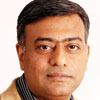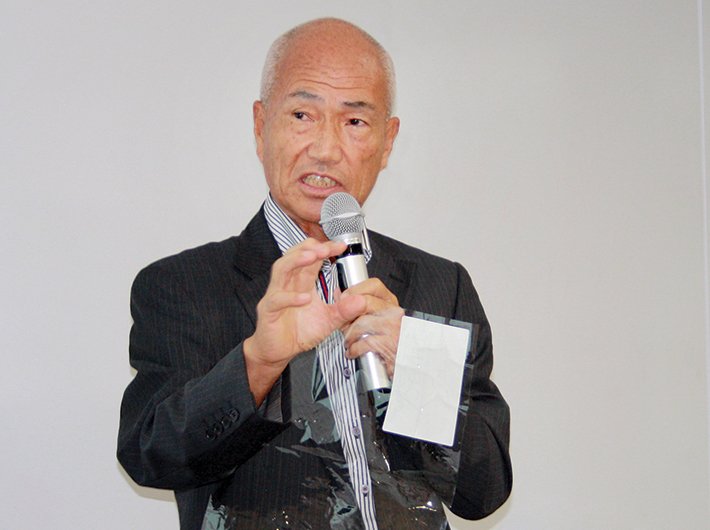Land is at the centre of the big debate in India, as more and more farming land is going to industry. But what if land is not necessary for farming? Though it sounds impossible, it has been done, and done successfully in places ranging from Dubai to Singapore. The man behind this technology, Dr Yuichi Mori, was originally doing his research in membrane technology used in healthcare, which he leveraged for farming. In 1995, he established Mebiol Inc to use medical membrane and hydrogel for agriculture and built the foundation of the intelligent membrane culture (Imec) technology that was invented by him. In his interaction with Shubhendu Parth in Tokyo, and subsequently through email, Dr Mori shared insights into the membrane-based technology that can enable one to do farming in any kind of land. Excerpts from the interactions:
What was the need to explore the film-based farming technology?
The primary reason to explore a substitute for soil as the base for agriculture was the need for safer and better quality food products. While contamination of soil due to harmful microbes and viruses, residual chemicals and heavy metals was a serious concern, the tsunami sludge and radioactivity due to the Fukushima nuclear plant crisis has also led to deterioration of agriculture land. Besides, the increasing salinity of soil because of water scarcity caused by global warming was another concern.
[Also read: Another lesson from Japan: how to make smart villages]
In Japan, there is also an urgent need to encourage the young population to adopt agriculture because more than 50 percent of farmers in the country are over 65 years. However, since soil chemistry varied from one season to another, and from place to place, young and inexperienced people are not willing to take up farming as an occupation.
The intelligent membrane culture (Imec) developed by us uses a functional hydrogel membrane instead of soil. The substitute membrane technology, which has been used in medical field (haemodialysis) for ages, ensures food safety because the hydromembrane absorbs the culture medium but rejects viruses and germs by strictly controlling the size of its pore. This guarantees food safety.
What is the basic principle of Imec?
Imec is a plant culture technology that separates the plant from the culture medium with the use of a membrane composed of hydrogel. This hydromembrane has nano-size pores that absorb water and nutrients from the culture medium but do not release any to the plant side surface. This compels the plant to develop a lot of fine and dense roots that get closely attached on hydromembrane surface to absorb water and nutrients. However, since the water supply is still insufficient the plant regulates the production of sugar and amino acids to raise the intracellular osmotic pressure. As a result, the culture medium is transferred from hydromembrane to the plant. The osmotic shift helps improve the quality of Imec-based agri produce, particularly the sweetness of produce like tomatoes.
Your presentation mentioned that the system dramatically reduces the consumption of water and fertiliser. Can you elaborate how?
The Imec system includes hydromembrane, waterproof sheet, drip tubes and use of non-woven fabric. While the liquid fertilizer supplied through the hydromembrane is 100 percent utilised, the waterproof sheet fully insulates the ground and prevents dissipation of the supplied culture medium (water and fertiliser). This helps drastically reduce the water requirement. It also helps reduce up to 90 percent water loss as in case of drop soil culture.
It is also important to understand that in the Imec system roots do not come in direct contact with the culture medium. Instead, they get water and nutrients from the film whose hydrogel property absorbs the culture medium but doesn’t release it. So, plants grow a thin flat sheet of roots on the film to sack culture medium in the film. This not only prevents evaporation but prevents sucking of excessive water by plants from the culture medium.
What are the different kinds of crops that can be grown using this film-based technology?
The technology is suitable for the production of fruit (and) vegetables like tomato, melon, cucumber, strawberry, eggplant, pepper and paprika. We are developing culture of tree fruits like grape, berry and pistachio as well.
Has there been a study on the impact of crops grown using the Imec technology on humans?
As mentioned above, the most important impact of Imec is high quality. The technology allows us to control quality and yield by changing the volume of the culture medium supplied directly on the film by the upper drip tube. The less volume or supply of culture medium means higher quality (sweeter tomato). This, however, reduces the per-hectare yield. The higher volume of supply leads to lower quality but more yield. In fact, even the lower quality Imec tomato exceeds the nutrition values of Hydroponics tomato.
You mentioned use of Imec technology in extreme weather conditions. Can you share more details?
In April this year we set up a 5,000 sq metre Imec tomato farm in the middle of a desert in Al Ayn as a proof of concept. The biggest challenge faced was the extreme heat condition since the temperature in Dubai was 53 degrees Celsius, the highest in the world, this summer. The inexpensive cooling system of pad and fan worked very well due to the extremely low humidity in the sand. This helped us bring down the temperature in the green house to below 37 degree Celsius. The produce was better in yield and sweetness as compared to the tomatoes in Japan. This was because the days are longer and the sunlight is stronger in Dubai compared to Japan. It could be said that the desert is the most befitting place for Imec. I am happy to inform that based on the success of our Al Ayan farm we have now bagged orders to set up ten-fold bigger tomato farms in the desert.
How do you compare the Imec technology with that of hydroponic technology?
The Imec concept of film-based agriculture is completely different from hydroponics. So, it is very difficult to compare. The concept of Hydroponics was founded in the Netherlands several hundred years ago. At that time sustainability was not an issue and the most important role of the farming was to produce as much as possible. The concept of Imec has evolved around Japan’s need of sustainability and the demand for safe and high-quality vegetables.
In a country like India, where 64 percent of cultivated land is dependent on monsoon, how would Imec technology help?
In the Middleast, the conventional irrigation system does not work because of water scarcity and sand which can’t preserve water. The Imec farm in the UAE has proven that the technology works well in low rainfall areas like desert and drastically reduces the quantity of water needed for agriculture. I guess Imec will work in India by using rainwater retained during the monsoons.
Are you looking at tapping the Asian market, particularly India?
We (have) just started to produce Imec tomatoes in Singapore and at three places close to Shanghai in China. We have strong interest in the deployment of Imec in India, because we have received a lot of interest in Imec from various business sectors in India. I am confident that this technology can help turn barren lands into rich agriculture centres that could help feed the rapidly growing world population. If it can be done in the deserts in Dubai, it can be done anywhere.
(This interview appeared in the October 01-15, 2014 print issue)

